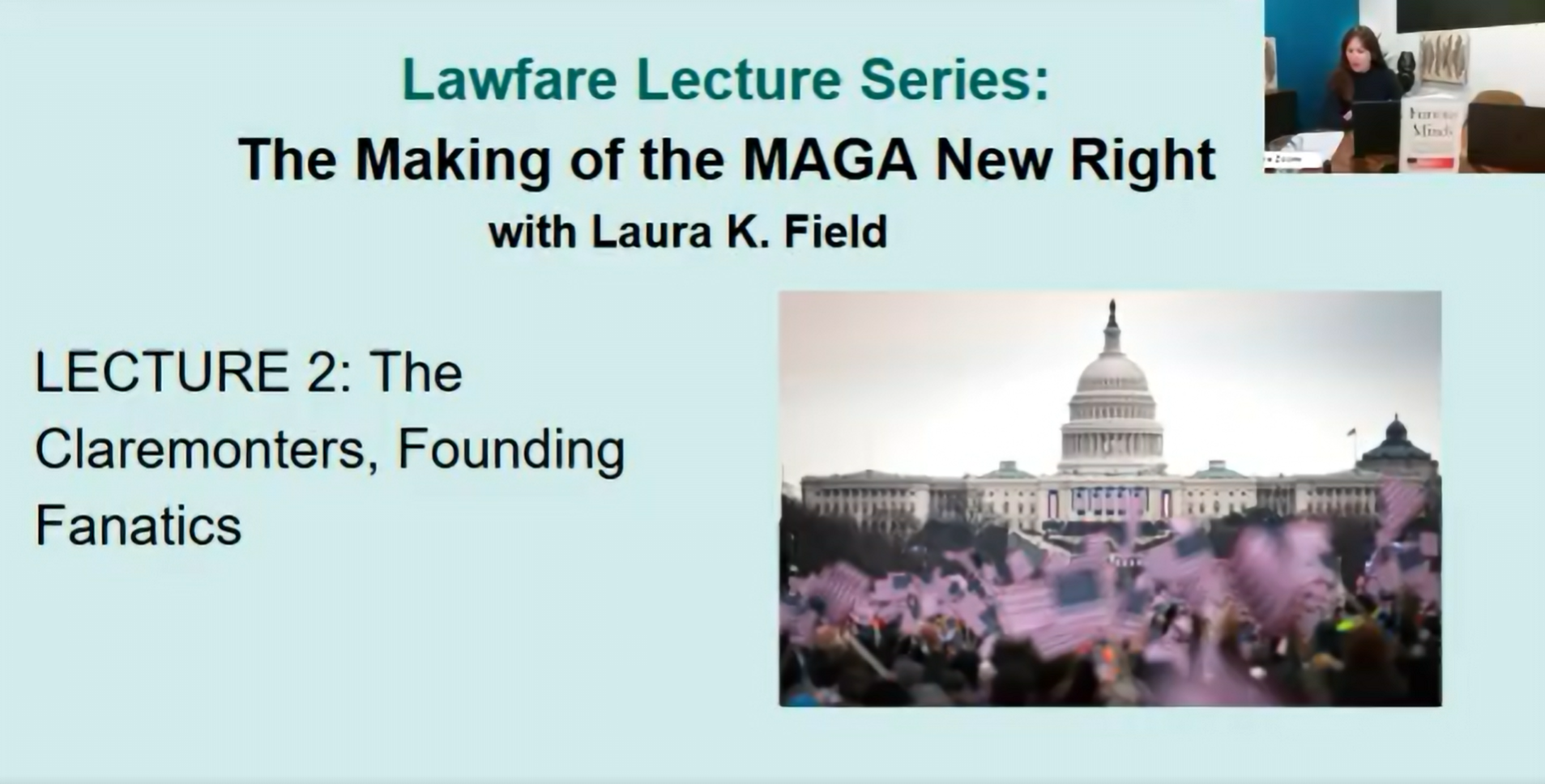The Week That Was: All of Lawfare in One Post
As the debate in Washington over how to deal with ISIS intensifies, Jack outlined how to make an authorization of force against the militant group politically palatable for both the President and Congress. His answer? Narrow it down.
As the debate in Washington over how to deal with ISIS intensifies, Jack outlined how to make an authorization of force against the militant group politically palatable for both the President and Congress. His answer? Narrow it down. Ben agreed that a narrow instrument may make an authorization more feasible politically, but warned that it would sacrifice both flexibility as well as an opportunity to reform the structural issues underlying congressional approval for force against emerging threats.
If the Obama administration seeks congressional approval for airstrikes against ISIS in Syria, John considered how it would square that effort with the President’s speech last year at the National Defense University, in which he promised to refine, and ultimately repeal, the AUMF.
On Saturday, Ashley examined a range of legal theories government lawyers might employ to justify whether U.S. airstrikes against ISIS in Syria would be compatible with international law.
Ben criticized U.S. News and World Report for suggesting that the ISIS militant who killed U.S. journalist James Foley might be tried by military commission at Guantanamo Bay.
Andy Wang analyzed the cert petition filed a few weeks ago by several non-Afghan detainees at Bagram Air Force Base, Afghanistan, and how it might be impacted by the release on Monday of Yemeni nationals Fadi Al-Maqaleh and Amin Al-Bakri.
Cody tipped us off about the release of a new, albeit heavily redacted, FISC opinion. Jodie Liu provided a summary.
Jack examined a recent piece in the New York Times on President Obama’s climate change accord ambitions, finding that the story exaggerates any real power the accord might have. Still, that might be just what the administration wants for the midterm elections.
Ben noted that Guantanamo detainee Abdul Razak Ali replied to his own cert petition, and made a glaring typo along the way.
Ben also flagged the administration’s response to the GAO report concluding that the Bergdahl trade violated the law.
John asked why the Executive failed to file a Suggestion of Immunity for actions the former Indian Prime Minister undertook when he was Finance Minister in litigation in the district court in D.C. He predicted the Executive will right course when the decision is appealed to the D.C. Circuit. He also noted in another post that the Second Circuit affirmed Official Acts Immunity for two former directors of Pakistan's ISI that were alleged to be involved in the 2008 Mumbai attacks.
Following the recent filing of a petition for rehearing en banc by the detainees in the Allaithi v. Rumsfeld case, Jane explained the two important questions that the detainees allege the panel’s decision raised as well as how they plan to argue them.
As Eastern Europe continues to convulse, Cody brought us a timely Lawfare Podcast entitled, “Russia Breaking Bad and the Future of the International Order.” Thomas Wright, fellow with the Project on International Order and Strategy (IOS) at Brookings, moderated a conversation between Brookings President Strobe Talbott, Senior Fellow Clifford Gaddy of the institution's Center on the United States and Europe (CUSE), and Susan Glasser, editor at Politico magazine.
In this week’s Foreign Policy Essay, Eric Heginbotham, a senior political scientist at the RAND Corporation, argued that the U.S. and Japan should stop wasting time examining the legality of China’s ADIZ and instead press issues that directly influence their national security, such as persuading Beijing to avoid dangerous airborne intercepts.
And that was the week that was.
Ben Bissell is an analyst at a geopolitical risk consultancy and a Masters student at the London School of Economics. He graduated Phi Beta Kappa from the University of Virginia with majors in political science and Russian in 2013. He is a former National Security Intern at the Brookings Institution as well as a Henry Luce Scholar, where he was placed at the Population Research Institute in Shanghai, China.



